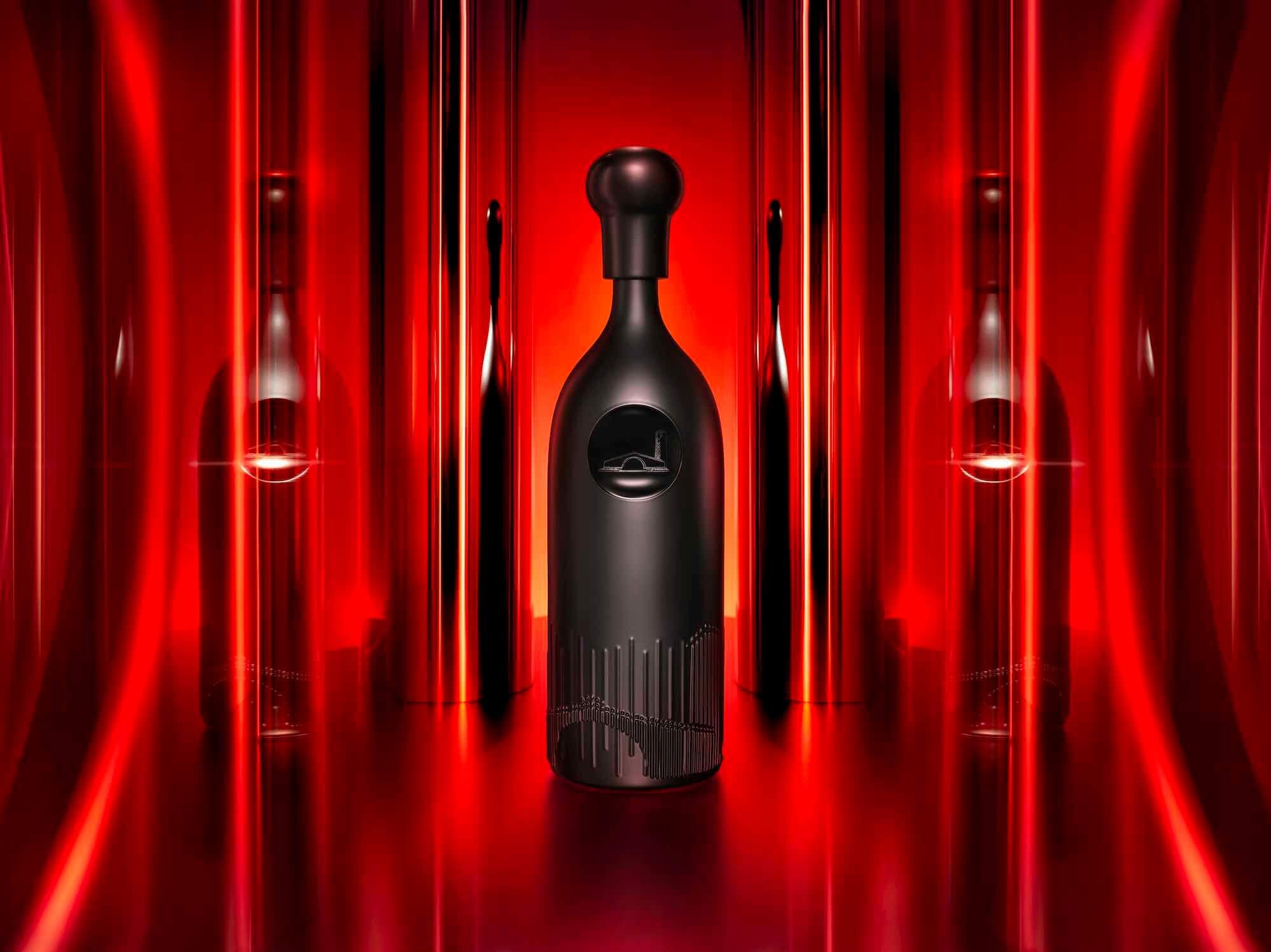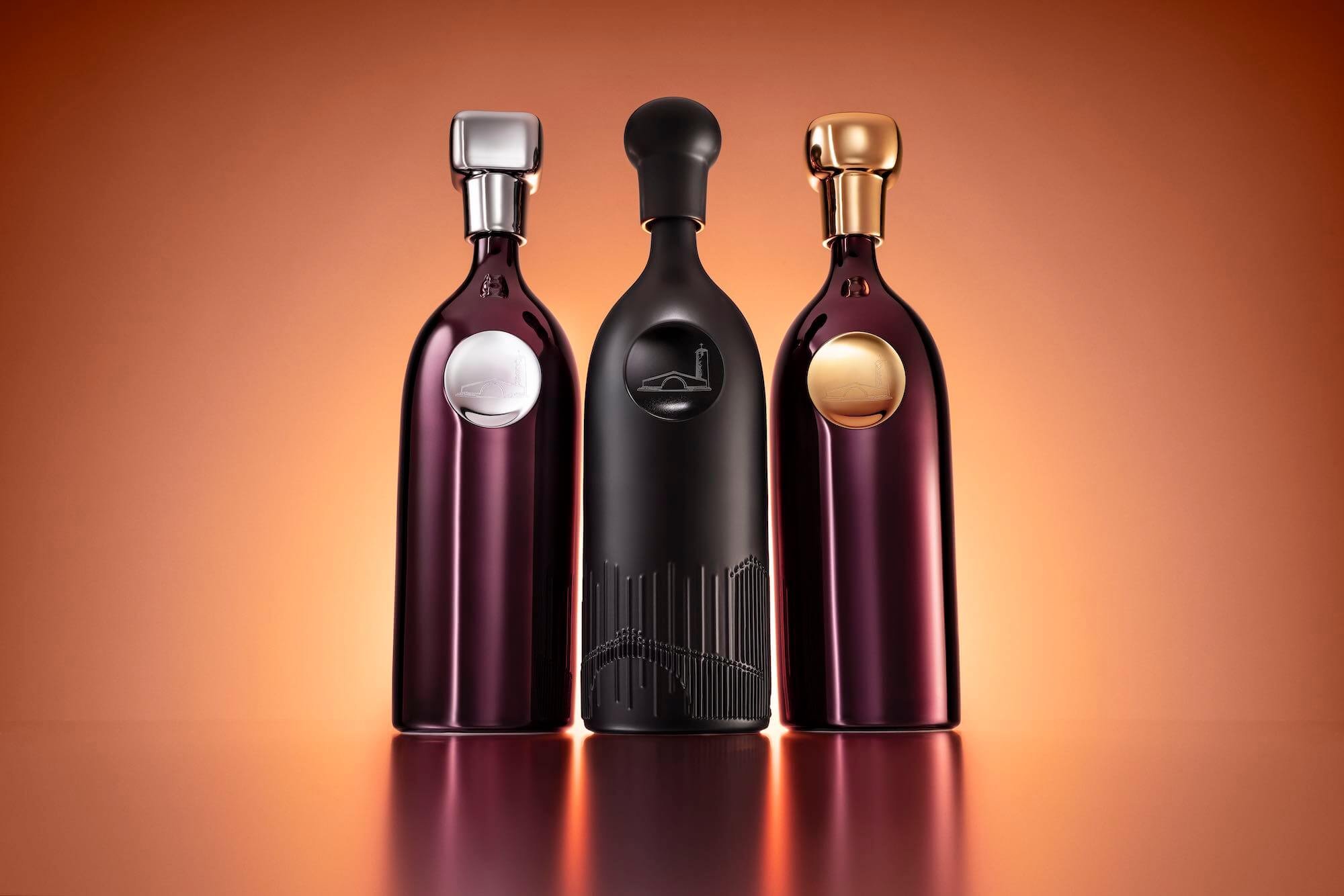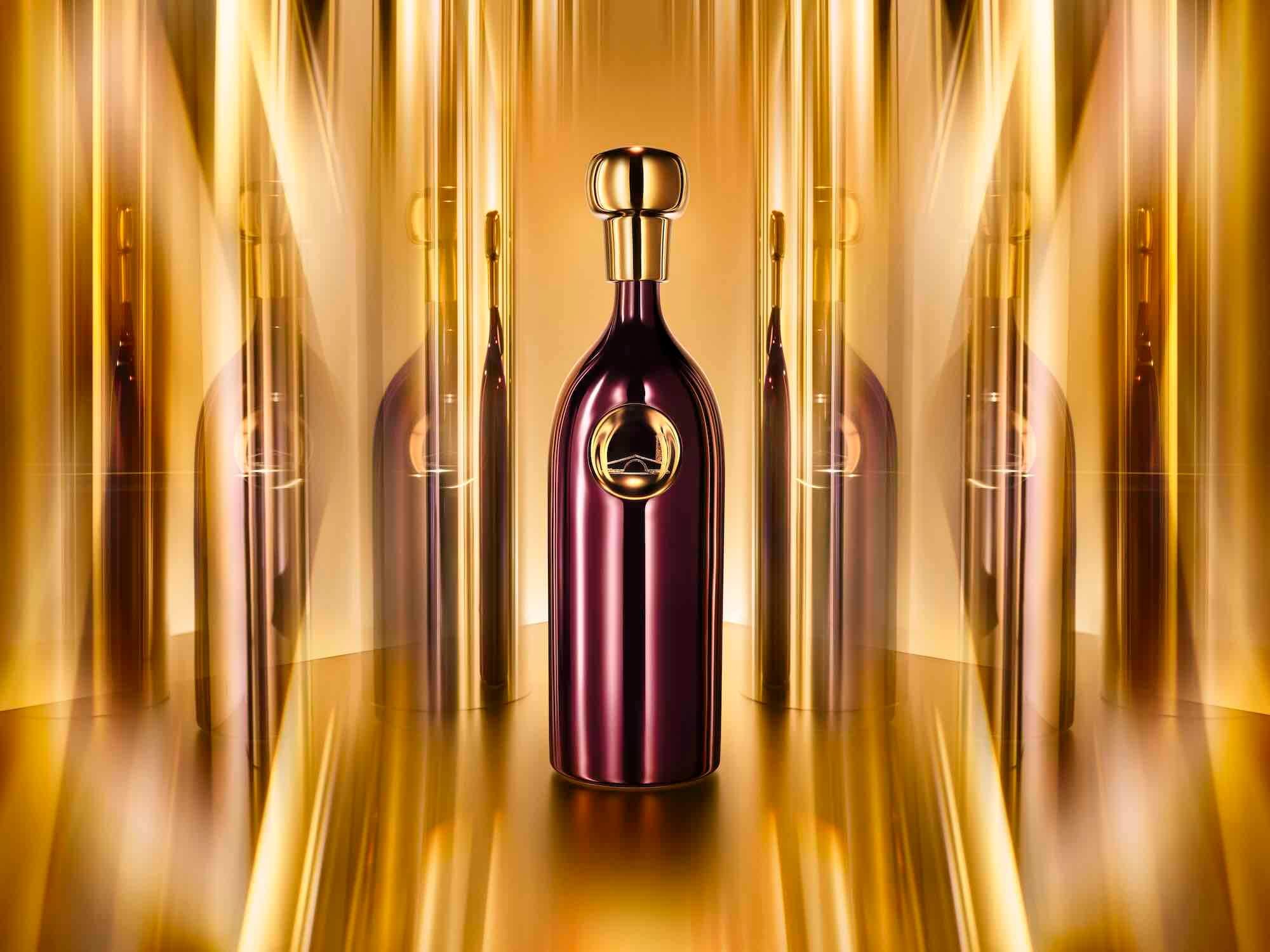Robert Mondavi Embraces the NFT Trend with Chic Style and Unique Flair
photo credit Tim Hogan
Art, technology, sustainability and crime-deterrence have long dominated the popular imagination. But often, one or two are paired together and cast “against” the others in an ongoing battle for cultural supremacy. In how many fields of endeavor do these four disciplines come together?
But Robert Mondavi Winery, no stranger to innovation and firsts—having founded the Napa winery in 1966, he helped usher in a new and dazzling era of American viticulture—is doing just that in a new limited bottle release through Generative Art Non-Fungible Tokens (NFT), that they say will simultaneously combat wine fraud, turn the bottle into a collectible and traceable work of art, and underline their focus on environmental responsibility. (The project’s carbon footprint is being offset).
On December 15th, the Robert Mondavi Winery x Berndaud collection named for the year of the winery’s launch and titled ”MCMLXVI” will land. MCMLXVI was created primarily to honor of the founder’s legacy as a visionary, creator and innovator. But also as a canny part of the winery’s strategy to elevate its position as a premium brand amid an increasingly crowded field, and as a bullish statement about its exciting future.
Bottle Trio with black bottle photo credit Tim Hogan
An Unusual Bottle
It is, as you likely guessed, no ordinary bottle release. First, there are the contents: the limited series of 1,966 Limoges porcelain 1.5L magnums contain blends created by Geneviève Janssens, Andy Erickson, and Thomas Rivers Brown, all of whom are noted vintners and members of the Robert Mondavi Winery Technical Council. The wine was designed to age for 30+ years.
Then, there’s the source: the grapes were grown in the To Kalon Vineyard in Napa, which is in the process of converting to organic viticulture. Mondavi is also partnering with Monarch Tractor on an electric tractor in a bid to lower their farming carbon footprint further. The 2019 Cabernet Sauvignon-based blend was created, Janssens said in a written statement, to “honor the terroir of To Kalon Vineyard and reflect our dedication to producing world-class wines. This collaboration is an embodiment of the innovative spirit of our founder, Robert Mondavi.”
The winemaking may be finished, but the experimentation is just beginning: some of the MCMLXVI wines will be placed in glass bottles for testing and tasting purposes, and the rest will be placed in custom-made porcelain bottles. One of each type will be opened and tasted side-by-side to understand how wine ages in the unique environment of porcelain, a spokesperson for the winemaking team explains, adding that the porcelain protects wine from light exposure, and has less temperature variation than traditional glass.
Burgundy and Gold photo credit Tim Hogan
An Unusual Guarantee
But the most notable innovation is that each bottle will be available only through non-fungible tokens (NFTs), making each a unique and collectible piece of art, completely traceable and therefore impossible to counterfeit. Wine fraud costs the industry an estimated $3 billion a year, according to WineFraud.com. It’s not just individual collectors who are being bamboozled; even the most storied auction houses have been affected.
NFTs have been making headlines in recent months—Jack Dorsey sold his first tweet as an NFT for $2.9 million, and Beeple sold an NFT artwork for $69 million—but what are they? Literally, a “non-fungible token” means that the item is utterly distinct and can’t be replaced with something else. Money is fungible; bitcoin is fungible; wine was fungible. One item can be traded for another, and the result will be you will have the same object. But an NFT attached to an object makes it one of a kind, like a rare baseball trading card.
While other wineries—and Whiskey brands—have entered the NFT space, this is by far the largest and splashiest entrance in the wine world. Each bottle is priced at $3,500 and will be available for purchase on December 15. (Standard and cryptocurrency will be accepted). Buyers will snag the NFT, and the bottles will ship in September of 2022.
The NFTs were developed by Mondavi with VaynerNFT, and Generative Artist Clay Heaton, who will produce 1,966 original works of digital art created as soon as they are purchased. Those tokens then serve as the “key” that collectors use to redeem the wine bottles, and other perks, like exclusive experiences at the estate itself, and early access to future offerings.
An Unusual Production Process
Sustainability comes into play not just in the way the grapes are grown, and the wine is produced but in the platform used to track the minting of the NFTs. Mondavi has partnered with sustainability platform Aerial to monitor the carbon footprint of the entire project, and offset it through third-party certified programs that protect and reforest the wilderness.
"We set out to create something truly revolutionary, channeling the visionary mindset of Mr. Mondavi himself, and are proud to introduce the Robert Mondavi Winery x Bernardaud NFT collection to mark the genesis of a historic transformation for the winery," says Robert Hanson, President, Wine & Spirits division at Constellation Brands, the parent company of Robert Mondavi Winery, in a written statement.
The Napa Valley winery, perched on 440 acres, with 180,000 cases in annual production and distribution across the U.S. and in 20 countries, wanted to align several key partners to pull of this initiative, as a signal of its inclusive and thoughtful approach to winemaking in the modern era.
Looking Forward, With a Nod to the Past
“As we embark on a historic transformation of Robert Mondavi Winery, I can’t imagine a better way to embody the commitment to innovation and exceptional craftsmanship that was so famously championed by our founder, Robert Mondavi,” Charlotte Selles, General Manager at Robert Mondavi Winery, tells The Alcohol Professor. “It has been an honor to partner with fellow pioneers, Bernardaud and VaynerNFT to bring this limited-edition collection of wines to fruition."
French luxury porcelain house Bernaurdaud created the first wine bottles it has ever produced—each of which took 50 craftspeople two weeks to create—to bottle the vintage.
"Our shared commitment to incredible quality, farm-to-bottle craftsmanship, and pioneering innovation has culminated in a thrilling endeavor from a winemaking perspective and a compelling investment for digital asset collectors, luxury design enthusiasts, and fine wine aficionados alike,” Hanson explained.
Wine, tech, art, crime-busting, and sustainability enthusiasts can mint their NFTs now and will be able to redeem them starting next year. Something for all of us—from wine to tech geeks—to look forward to toasting in 2022.



